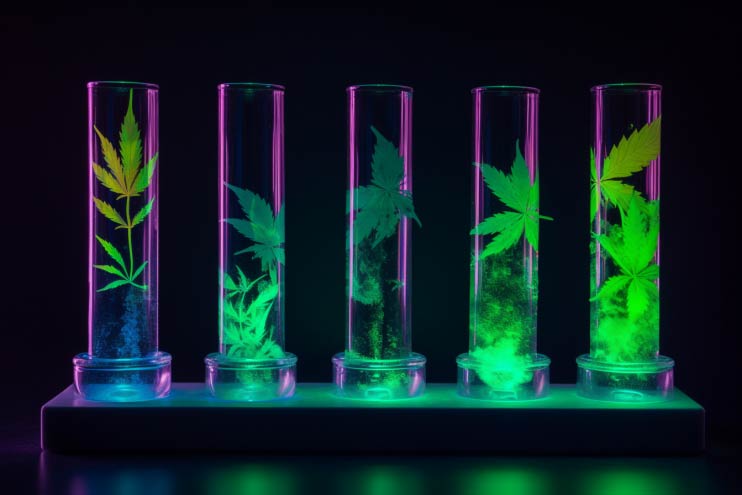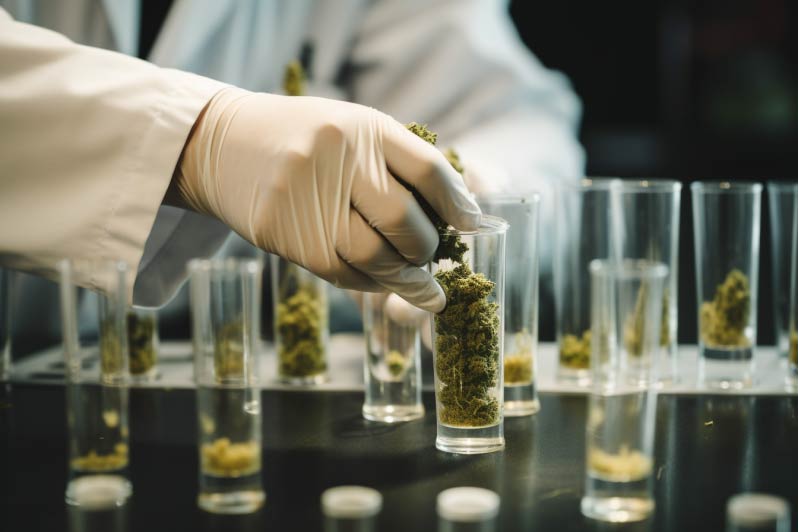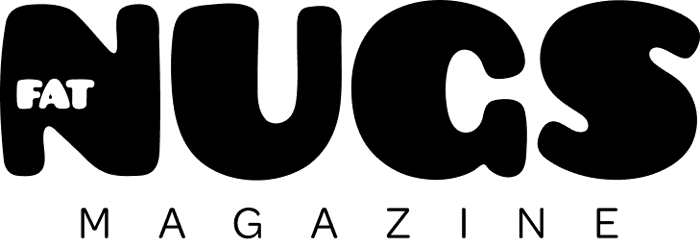All Art Courtesy of Rebekah Jenks
We rely on the accuracy of label claims on many products we use daily. Over the counter medication dosages with known percentages of active ingredients, the number of calories in an item you are eating… but would you place that same weight on your most recent cannabis purchase?
If you are tuned into the cannabis industry, you understand the dilemma: If your product doesn’t test over a certain THC percentage, especially flower, your product won’t be sitting on the shelf in the dispensary.
 State laws differ drastically when it comes to the variance of cannabis’ active ingredient, THC, as well as product sampling and testing methods. I know because I have worked in the Quality and Compliance realm for most of my professional career including Nevada, Virginia and Arizona’s Adult Use Cannabis markets. I have been the person responsible for compliance in each of those states.
State laws differ drastically when it comes to the variance of cannabis’ active ingredient, THC, as well as product sampling and testing methods. I know because I have worked in the Quality and Compliance realm for most of my professional career including Nevada, Virginia and Arizona’s Adult Use Cannabis markets. I have been the person responsible for compliance in each of those states.
Your purchase could be 20 percent higher or lower than the label claim in Arizona, 15 percent in Michigan and 10 percent in California. You don’t need a vivid imagination to be able to draw the line between inaccurate testing claims and the unpredictable-ness when it comes to dosing of patients. This is especially important for infrequent or new cannabis consumers who rely on accurate label claims for a consistent experience with their cannabis.
How is a company with low testing results able to remediate the products which will meet the industry standards for sale?
Some can divert low potency THC cannabis flower to different revenue streams. This captures all the cannabinoids from the lower potency flower utilizing ethanol, CO2, hydrocarbon (LPG, BHO, etc.) and water hash extraction methods to make value added products such as concentrates, vape carts, edibles and beverages.
However, this process requires additional licenses, compliance, safety mechanisms and construction to accommodate these production methods. With funding all but dried up and laws limiting the number of licenses available, along with their associated costs, options are limited. You may be able to sell the material for substantially less to a manufacturer who can use the material. OR… you can work with labs who produce favorable results.
What are favorable results and what would a lab have to gain by producing favorable results?
And what does it mean for good players and ethical laboratories whose results aren’t always favorable to the client?
In Oregon and Colorado, for example, there is an oversupply of labs performing testing alongside a cannabis market struggling for profitability. This means labs are fighting to retain their customer base and to also keep the lights on.
 Unethical labs looking to gain new or attempting to retain existing customers, may try to produce favorable results. This can range from over drying samples to achieve higher potency results to overlooking microbial, or heavy metal contamination with “looser” standards which dilute issues and “pass” testing as a result.
Unethical labs looking to gain new or attempting to retain existing customers, may try to produce favorable results. This can range from over drying samples to achieve higher potency results to overlooking microbial, or heavy metal contamination with “looser” standards which dilute issues and “pass” testing as a result.
Lab shopping is a technique where companies will divide samples among several labs and choose which results to report based on whichever produces the most favorable results. Labs play into this behavior by trying to gain an advantage over their competitors by promising “better” results. If a lab mentions using this promise, take it as a red flag warning. It’s a risk some companies willingly take, but be forewarned. This technique works until it doesn’t. Successful brands have tarnished their reputations by being associated with adulterated samples and unscrupulous testing. A brand that rhymes with Skeeter comes to mind.
Not all laboratories are created equal.
Many labs follow the rules adhering to strict practices and SOPs utilizing higher standards taken from other industries. These are also the first labs to take a hit from bad players manipulating the market and their results. Labs have closed their doors deciding not to work in such an environment until regulations are standardized and there is greater integrity within the legalized market.
Customer purchases are not limited to one singular market and each state has created a confusing discombobulation of regulations which ultimately leaves customers in the dark when it comes to accurate and reliable dosing. Standardization of regulations and testing across state lines for laboratory testing is needed to begin the process of reigning in bad players because it is ultimately the customer who bears the brunt and carries the full weight of this problem.
We as an industry need to hold ourselves to a higher standard and embrace integrity to deliver these changes. Customers deserve accurate information, and by shedding these shady practices, we will continue to push the conversation forward and continue to lift the stigma surrounding cannabis.
Working compliance in the cannabis industry is not for the faint of heart. It takes individuals willing to stand up for what is right. You are the eyes and the ears of the consumer. You are the bridge between what leaves your facility and reaches the customers or patients hands and what doesn’t meet the cut. You would be amazed what I’ve seen during my time working as a compliance officer in the regulated cannabis industry.
It’s easy to spot the bad players, but what’s even more important is to highlight who is doing good. The ethical labs. The reliable labs. The labs who focus on results instead of market share. Due to the lack of standardization, a patchwork of regulations, and a high THC percentage driving the purchasing of products, there is a dire need to hold labs and brands accountable.
I plan to work with a trusted laboratory which has agreed to help by analyzing samples obtained from dispensary shelves. I will be comparing the lab results to the label claims as well as performing a sensory analysis of the product being tested. I hope to help cannabis consumers determine which brands and which labs results are trusted and others which may have explaining to do. See for yourself by tuning in to watch my analyses on Three Good Buds’ and Fat Nugs Magazine’s platforms.


